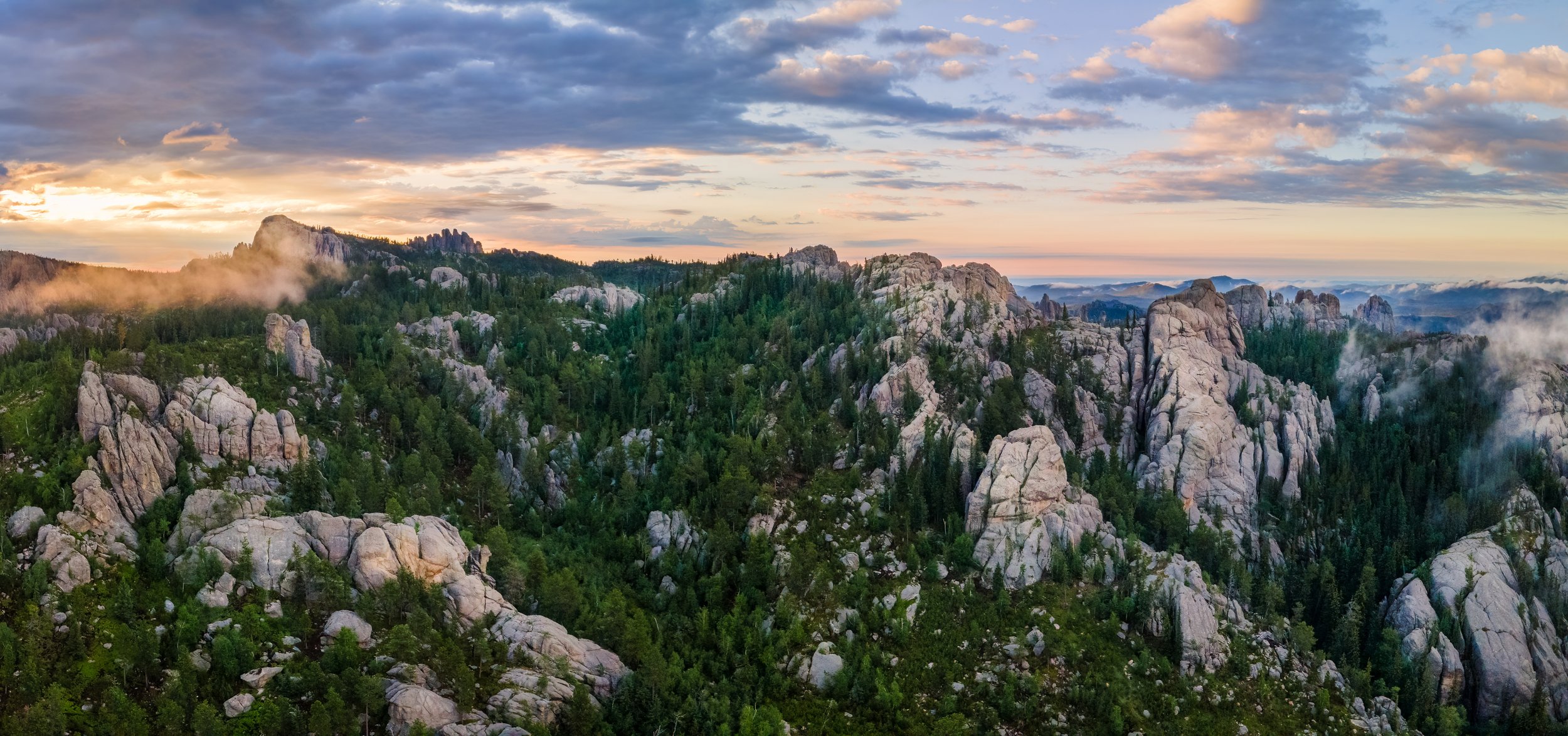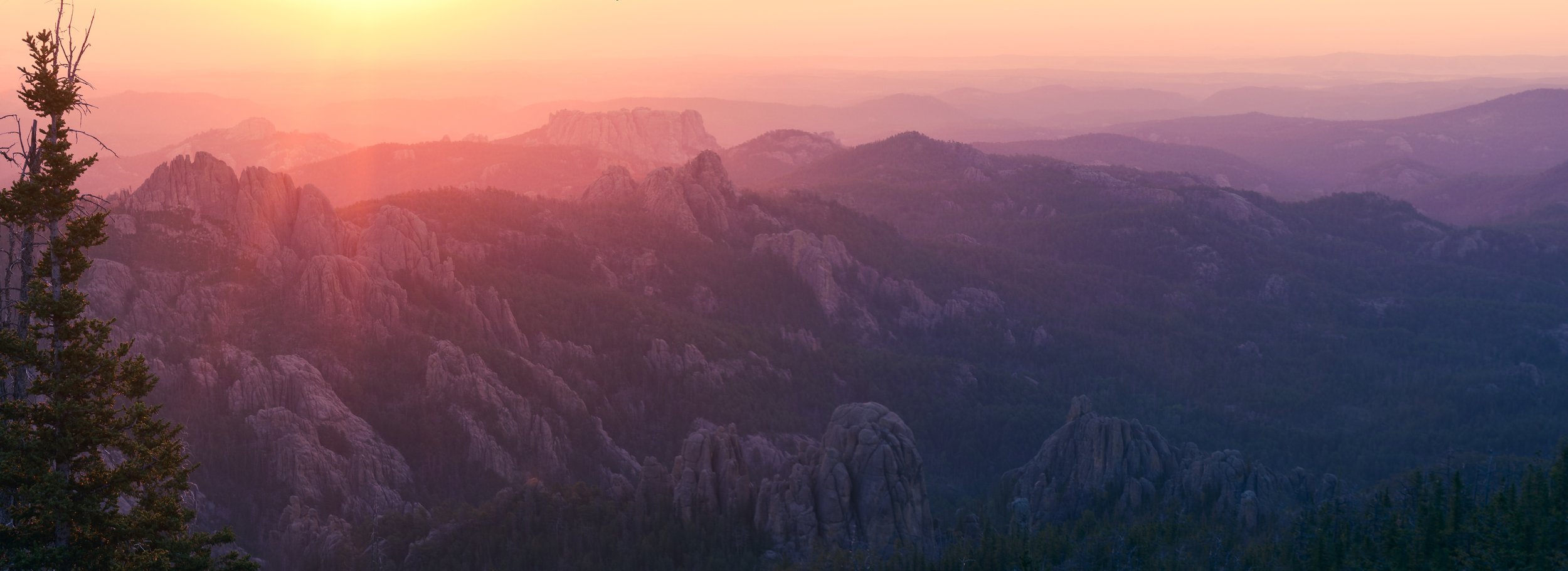
Stewardship
_
Reclaiming and protecting our ancestral lands
Paha Sapa, now known as the Black Hills, is sacred land. It is the land of our ancestors, the sacred site for our religion, and our physical and spiritual home.
What’s more, this land is in need of care. A century of mining and timber operations has contaminated the rivers and groundwater, degraded the forest, and continues to threaten animal populations that call the sage lands, pine forests, and grasslands of the Black Hills home.
The Sioux people have a long history of stewardship in the Black Hills. Under our ancestors’ care, the land and its varied ecosystems thrived. The Black Hills need our people and we need to reconnect with and care for this sacred ancestral land.
A History of Stolen Land
“The Papal Bull decrees that God granted European settlers full jurisdiction of the people and land of the Americas, setting the stage for the struggle Native Americans continue to face today. ”
“The Supreme Court rules American Indians do not own land.”
“U.S. Congress passes the Indian Appropriations Act and forces Native people to move to and live on reservations.”
“The Treaty of Fort Laramie is signed stating that the Black Hills belong to the Sioux people as part of the Great Sioux Reservation.”
“Gold is discovered in the Black Hills and white settlers begin to claim the land for mining.”
“An Act of Congress (misleadingly called The Agreement of 1878) breaks the treaty between the U.S. government and the Sioux; the Sioux are moved from the Black Hills to reservations across four states. Our people, the Oglala Sioux, are relocated to Pine Ridge.”
“The U.S. Supreme Court rules that the Black Hills were illegally taken from the Sioux Nation and awards the Sioux $102 million in restitution. We do not accept it.”
“While President Obama is in office, the topic resurfaces. By now, the amount in trust has grown to $1.3 billion but the tribes still refuse to take it.”
“The fund is now worth more than $1.5 billion U.S. dollars.”
*Artwork by Shepard Fairey for Honor the Treaties Campaign
Our Vision for the Future of the Black Hills
The Black Hills are not for sale. We believe these unceded lands must be returned to the nine tribes of the Great Sioux Nation for stewardship, management, and to help our people reconnect with their ancestry and spiritual home.
We have created a campaign to effect policy change at the very top of the US government – this change must come from Congress or the President of the United States – which requires public awareness, fundraising, and advocacy at the grassroots level.


